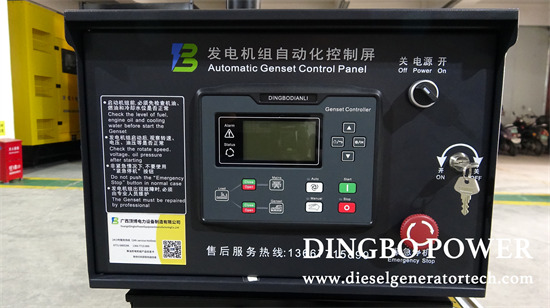Once a diesel generator fails, it must be repaired before it can be put into production again. Careful working attitude and accurate fault analysis are necessary conditions for successful maintenance of diesel generator. However, in our daily maintenance work, some irregular work habits often lead to the failure of maintenance work. Here, Dingbo Power Generation Equipment lists some illegal working habits in the maintenance of diesel generator for our technicians to learn from. The specific content is shared as follows:

1. Unqualified cleaning of generator parts
During the maintenance of diesel generator, the correct removal of oil stains and impurities on the surface of parts is of great significance to improve the repair quality and extend the service life of machinery. If the sundries in the bolt hole and the sand in the hydraulic element are not completely removed, the bolt torque is insufficient, the piston ring is easy to break, the cylinder gasket is ablated, and the hydraulic element is worn early: during the overhaul of the diesel generator, the oil dirt or impurities accumulated in the filter, lubricating oil passage, etc. are not carefully removed, which makes the maintenance work incomplete and reduces the trouble free operation time of the equipment.
2. The quality of the small parts of the unit is not up to standard
During the maintenance of diesel generator, some maintenance personnel often only pay attention to the maintenance of pump, fuel pump and other parts, but ignore the maintenance of "small parts" such as various instruments. Who knows that it is precisely these "small parts" that lack maintenance, leading to early wear and tear of the machinery and shortening its service life. For example, if the oil filter, air filter, hydraulic oil filter, water temperature gauge, oil temperature gauge, oil pressure gauge, sensor, alarm, filter screen, grease nozzle, oil return connector, cotter pin, fan air guide cover, drive shaft bolt locking plate, etc. used by the unit are not maintained carefully, they will often be "penny wise and pound foolish", resulting in diesel generator equipment failure.
3. Habitual maintenance errors occur
When maintaining equipment for diesel generator, some maintenance personnel do not understand some problems that should be paid attention to during maintenance, which leads to "habitual" errors in disassembly and assembly, affecting the maintenance quality of machinery. For example, when installing the piston pin, the piston pin is directly driven into the pin hole without heating the piston, resulting in increased deformation of the piston and increased ovality: when repairing the diesel generator, the bearing bush is excessively scraped, and the antifriction alloy layer on the surface of the bearing bush is scraped off, resulting in early wear caused by direct friction between the steel back of the bearing bush and the crankshaft; When disassembling interference fit components such as bearings and pulleys, do not use a tensioner. Hard hitting and knocking can easily cause deformation or damage to the components; When unsealing new pistons, cylinder liners, fuel injection nozzle assemblies, plunger assemblies, and other parts, burning the oil or wax stored on the surface of the parts can cause changes in the performance of the parts, which is not conducive to their use.
Dingbo Power was founded in 1974 and is one of the earliest manufacturers of generators and diesel generator sets in China. If you want get more information, please feel free to send email to sales@dieselgeneratortech.com we will pay highly attention on your question.
Comments
Post a Comment